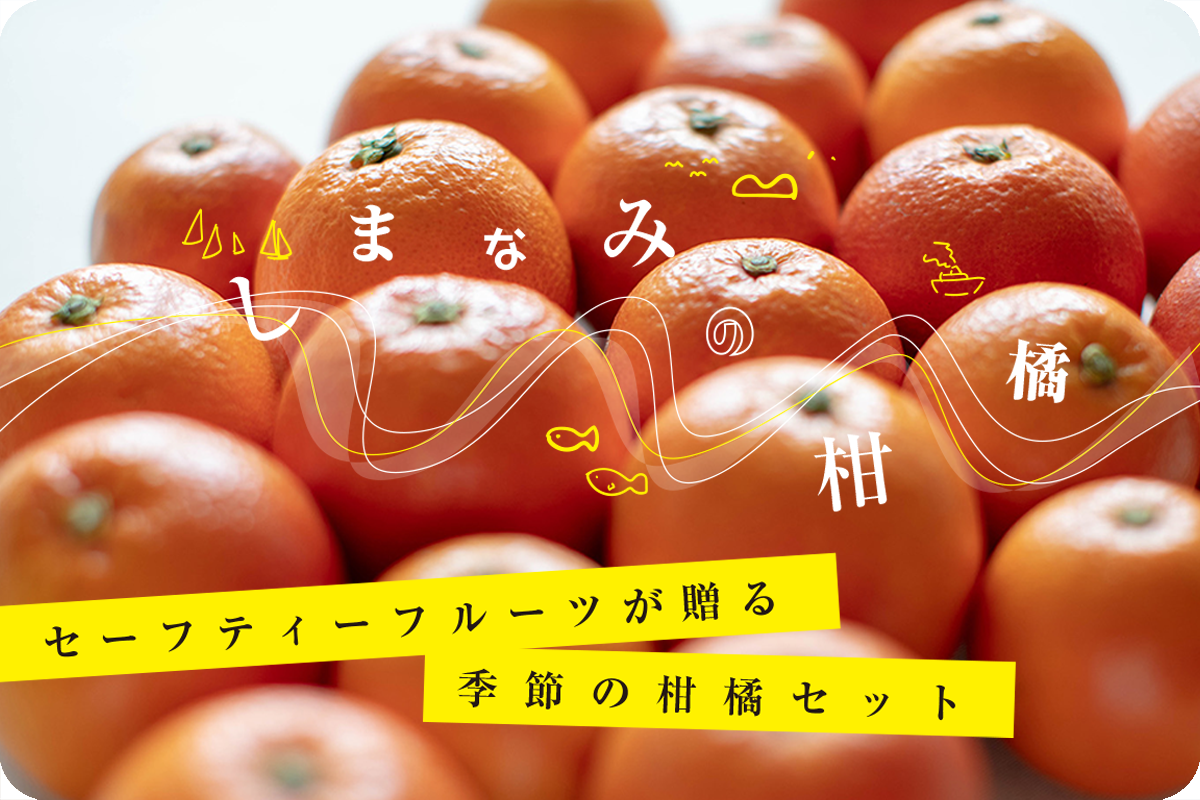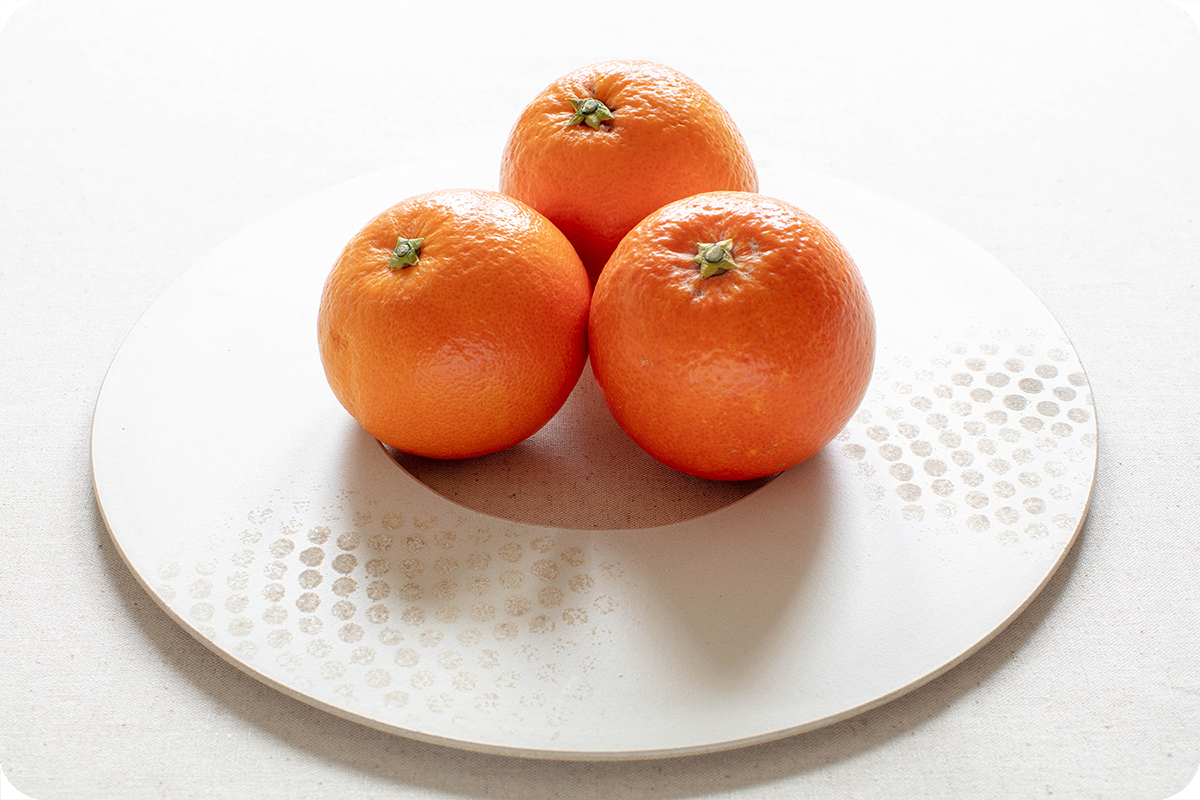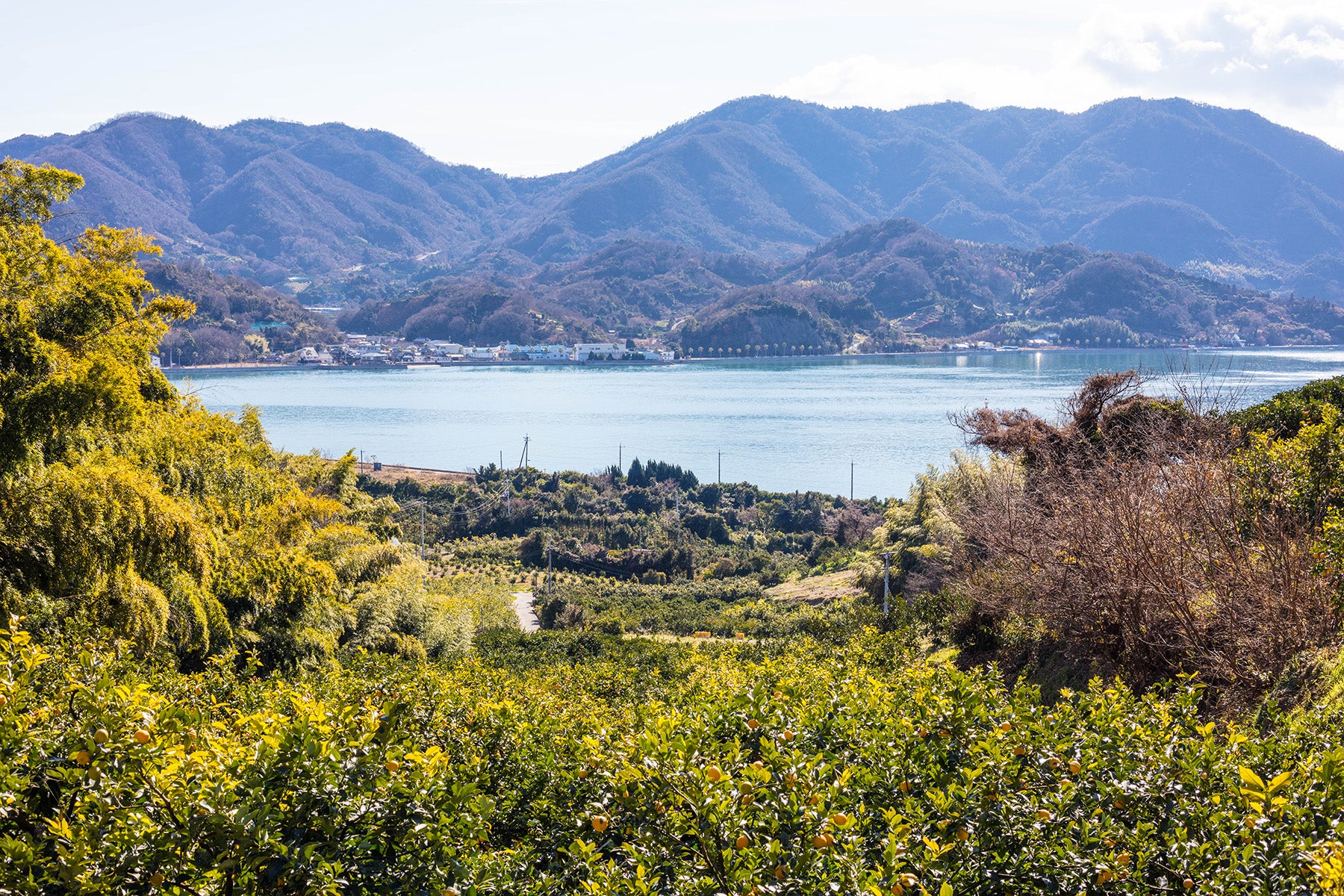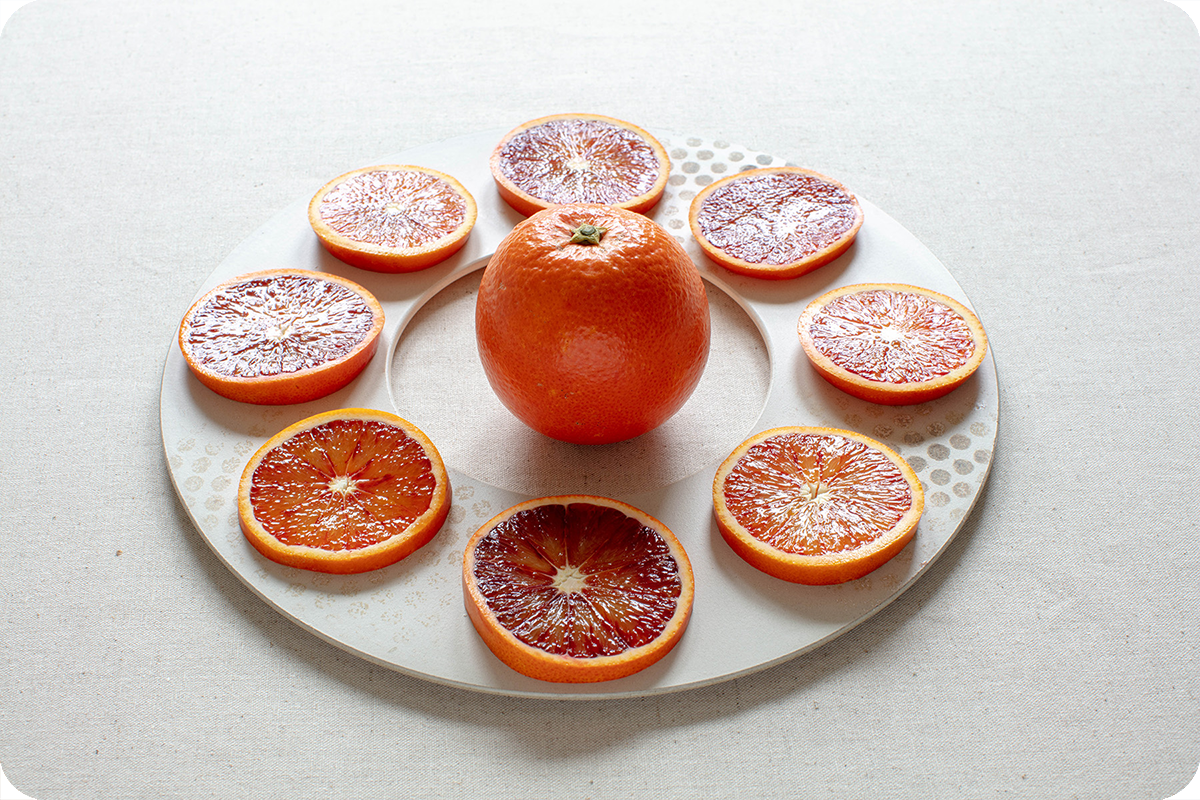



-
販売時期:1月〜4月
生産者:セーフティーフルーツ
代表者:能勢賢太郎
住 所:広島県尾道市瀬戸田町中野586
セーフティーフルーツ公式サイトはこちら
瀬戸内の海と温暖な気候が育てる健康な柑橘類
1月から4月までブラッドオレンジや宮内伊予柑、きよみ、はるみ、ネーブルなどさまざまな柑橘が食べごろを迎えます。いよいよ柑橘類の終盤、甘夏の登場です。セーフティーフルーツの柑橘は先代から化学肥料・化学合成農薬や除草剤を使わない、いわゆる有機農法で柑橘類を育てています。だから、品種の持つ味を最大限楽しむことができます。 ただ、栽培方法の特色により、A級品でも多少の風スレ傷や病害虫被害果のものがあるため、キズなどが気になる方は購入をおすすめしません。
お勧めする理由
◉自分の子どもに食べさせたいと思える栽培方法を実施している
◉安心して皮まで利用できる
◉地域を考え、人に手を差し伸べられる農業を目指している
商品名 しまなみの柑橘 農 薬 無化学農薬 肥 料 無化学肥料 認 証 特別栽培 販 売 1月〜4月 消費目安 冷暗所にて2周間
*映像及び取材文は能勢さんのしまなみレモンを取材した内容です。
能勢さんのレモンといえば、安心して皮まで使えるレモンとしてパティシエやシェフの間で有名になりつつある。レモンを使ったお菓子やレモンサワーに皮ごとまるごと使うレモン、レモンを仕込んだリキュールを作るためにさまざまなシェフが好んで利用するからだ。いまや「しまなみレモン」は安全で安心できる日本の代表的なレモンとして認知されようとしている。また、今後力を入れたいと話すブラッドオレンジは、子どもたちに知って欲しいと低価格で提供したところ、給食で使われるほどになった。
能勢さんは必ずお客さまと電話で話をする。心が通わないビジネスは好まないし、畑に来て欲しいと話す。瀬戸田(生口島)の環境や自分の農法を知ってもらった上で、商品を購入してもらいたいのだ。
現在、国内に流通しているレモンのほとんどは外国産で、国産レモンは1割に満たない。輸送に時間がかかる外国産レモンが防カビ剤や防腐剤が使われた未成熟の状態で船積みされる一方、国産レモンは完熟した新鮮なものを市場に出せるという大きな強みがあり、食の安全が注目されるにつれ、需要が高まっている。そのなかで、広島県はレモンの栽培面積・生産量ともに日本一を誇り、国産レモンの半数以上を占めている。そして県内でもレモンを最も多く出荷しているのが、尾道市瀬戸田町である。生口島と高根島のふたつの島からなり、レモンやみかん、ネーブル、八朔といった日本屈指の柑橘類の産地として知られている。
父の代から30年以上、防腐剤やワックスはもちろん、農薬や化学肥料、除草剤を使用せずに健康なレモンやみかんの栽培を続けている能勢賢太郎さんは、瀬戸田町で1%もいない有機栽培農家だ。島の約半分が急傾斜のため、作物によく日が当たる地で、見た目よりも皮ごと食べられる安全性と味にこだわり、柑橘作りに励んでいる。
栽培の気候条件が厳しいレモン

瀬戸内が日本一のレモンの産地なのは気候条件が適しているからです。日本で有数の日照時間を誇る温暖な気候で、降水量が少なく、雪もほぼ積もりません。レモンは他の柑橘に比べて寒さに弱く、気温マイナス3度が3時間以上続くと枝の先から枯死していきます。枝にトゲもあるのでキズになりやすく、比較的栽培難度の高い柑橘です。
僕のレモンは、露地の有機栽培のなかではトップクラスのきれいさだといってもらえるんですが、殺虫剤をずっと撒いていないので、生態系のバランスが整っているからだと思います。殺虫剤を撒けば良い虫も悪い虫も殺し、薬に強い虫が生き残り、さらに強い殺虫剤を撒かなければならなくなり、悪循環を招きます。除草剤を撒いた畑には虫がいないから、イノシシは一切入りません。ここはセミの幼虫やミミズなど、いろんな生き物がいる。それらを食べるためにイノシシが土を掘り返し、耕してくれます。柔らかい土は微生物や虫、動物によって作られています。
僕の家は代々の農家ではありません。親父はトラックの運転手で、この島のみかんを運送していました。無農薬や無添加の食材を販売している関西の方から有機栽培の農産物を求められ、親父は大胆なタイプでしたから、自分で取り組むことにしたそうです。放任園なども預かってきたので、生口島と高根島の条件のいい所から悪い所まで散り散りに畑があります。おいしいかどうかは天候次第

有機・無農薬農産物、無添加食品の配達会社で8年ほど働いていたときに、親父の作ったものをお客さんに届けて喜ばれると、親父のやってることってすごかったんだなと感じるようになりました。普通栽培との違いや添加物の何が悪いのかを勉強すればするほどコンビニ弁当を食べることが減り、たまに食べるとお腹をくだして体調が悪くなる。人間の体は食べたものでできているんだなと改めて感じました。
みかんは個性もあるし、やれることはとことん一生懸命やっているけど、結局は味も天候次第。お客さんと直接話して作り手の思いを理解してもらい、対等に意見を言い合える関係を築き上げたいですね。人と人、農村と都市、生産と消費がちゃんと繋がることがすごく大事だと思います。
お客さんと繋がって柑橘栽培をして、この島で生きていくことが僕の仕事というか、生きがいです。 メールの問い合わせには電話で対応します。最初は嫌がられますが、友達・親友関係になって正直に向き合いたい。産地偽装などの食品の事件は物と金のやり取りで儲けを重視し、生産と消費が遠すぎるほど起こる気がします。1歳の自分の子が触っても食べても大丈夫なものを一生懸命作るだけでいい。電話は効率が悪いけど、楽しいです。 -
Sales time: January to April
Safety Fruit
Representative : Kentarou Nose
Address: 586 Nakano, Setoda-cho, Onomichi-shi, Hiroshima
Safety fruites's official site
Healthy Citrus grown by the Seto Inland Sea and warm climate
From January to April, various citrus fruits such as blood orange, Iyokan Miyauchi, Kiyomi, Harumi, and Navel are ready to eat. Safety fruit citrus has been grown by so-called organic farming, which does not use chemical fertilizers, synthetic pesticides or herbicides since its predecessor. Therefore, you can enjoy the taste of the variety to the fullest. However, due to the characteristics of the cultivation method, even A-class products may have some wind scratches or pest-damaged fruits, so we do not recommend purchasing those who are concerned about scratches.
Reasons to recommend
◉Implementing cultivation methods that we want our children to eat
◉You can use the skin with confidence (bath, etc.)
◉Aiming for agriculture that can reach out to people considering the region
Product name Citrus Assort Pesticide Free chemical pesticide Fertilizer Free chemical fertilizer Authentication Special cultivation Sell Blue lemon: November, yellow lemon: January-May Consumption standard 2 weeks in a cool dark place
*The video and articles are from Nose-san's Shimanami Lemon.
Speaking of Nose's lemon, it is becoming popular among patissiers and chefs as a lemon that can be used with confidence. This is because various chefs like to use lemon-based sweets, lemon sours and whole lemons, and liqueurs with lemon. Now Shimanami Lemon is about to be recognized as a safe and reliable representative of Japan. Blood orange, who says he wants to work harder in the future, has been offered at low prices when children want to know about it, but it is now used for lunch.
Nose always talks to customers over the phone. He says he doesn't like business that doesn't make sense and wants him to come to the field. We want them to know the environment of Setoda (Ikuchijima) and their own farming methods before purchasing products.
At present, most of the lemons distributed in Japan are made in foreign countries, and less than 10% of domestic lemons are produced. Foreign lemons, which take a long time to transport, are shipped in an immature state with fungicides and preservatives, while domestic lemons have the great advantage that they can bring ripe and fresh ones to market, making food safe. Are gaining attention and demand is growing. Among them, Hiroshima Prefecture boasts the largest cultivation area and production volume of lemons in Japan, and accounts for more than half of the domestic lemons.Setoda-cho, Onomichi City, also ships the most lemons in the prefecture. Consisting of two islands, Ikuchijima and Takanejima, it is known as one of Japan's foremost citrus producing areas such as lemon, mandarin orange, navel, and hassaku.
Kentaro Nose, who has been cultivating healthy lemons and tangerines without using preservatives and waxes, as well as pesticides, chemical fertilizers and herbicides, for more than 30 years since his father's generation, accounts for less than 1% in Setoda-cho. Organic farmers. About half of the island is steep, so the sun is shining on crops, so we focus on the safety and taste of eating the whole skin rather than the appearance, and we are making citrus fruits.Lemon with harsh climatic conditions

argest lemon-producing region because of its climatic conditions. It has a warm climate with one of the best sunshine hours in Japan, with little rainfall and little snow. Lemons are less susceptible to cold than other citrus fruits, and will die from the tip of the branch if the temperature minus 3 degrees continues for more than 3 hours. It is a citrus that is relatively difficult to grow because it has thorns on its branches and is easily damaged.
My lemon is said to be one of the cleanest in the open field organic cultivation, but because the pesticides have not been sprayed all the time, I think that the ecosystem is well balanced. Spraying insecticides kills both good and bad insects, which means that drug-resistant insects survive and that even stronger insecticides must be sprayed, creating a vicious cycle. There are no insects in the field where the herbicide is sown, so no wild boars enter. Here, there are various creatures such as cicada larvae and earthworms. The wild boar digs and plows them to eat them. Soft soil is made by microorganisms, insects and animals.
My house is not a generation of farmers. My father was a truck driver and carried oranges on the island. The father of Kansai, who sells non-pesticide-free and additive-free ingredients, requested organically grown agricultural products, and his father was a bold type, so he decided to work on his own. As we have also been entrusted with the Hojoen, there are fields scattered around Ikuchijima and Takanejima from good to bad conditions.Whether it is delicious depends on the weather

When I was working at a delivery company for organic, pesticide-free agricultural products and additive-free foods for about eight years, when I was pleased to deliver what my father made to customers, I felt that what he was doing was amazing. It came to be. The more you study the differences from normal cultivation and what is wrong with the additives, the less you eat convenience store lunch boxes, and the more you eat them, the more you get hungry and sick. I felt once again that the human body is made of what I ate.
Mandarin oranges have their own personality, and I'm doing my best to do what I can, but in the end, the taste depends on the weather. I would like to talk directly with customers to understand the creator's thoughts and build a relationship where they can exchange opinions on an equal footing. I think it is very important that people and people, rural areas and cities, and production and consumption are properly connected.
It is my job to connect with customers, grow citrus fruits, and live on this island. We will respond to email inquiries by phone. I don't like it at first, but I want to be honest with my friends and best friends. Food incidents such as disguised production areas emphasize profits by exchanging goods and money, and I feel that the farther production and consumption are, the more likely it is. All you have to do is make something that your one-year-old child can touch and eat. The phone is inefficient, but fun.

オプションを選択




